Shutter Island
 for disturbing violent content, language and some nudity.
for disturbing violent content, language and some nudity.
Reviewed by: Ethan Samuel Rodgers
CONTRIBUTOR
| Moral Rating: | Extremely Offensive |
| Moviemaking Quality: |
|
| Primary Audience: | Adults |
| Genre: | Suspense Mystery Psychological Thriller Drama |
| Length: | 2 hr. 18 min. |
| Year of Release: | 2010 |
| USA Release: |
February 19, 2010 (wide—2,500+ theaters) DVD: June 8, 2010 |
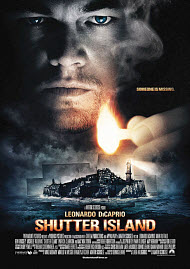

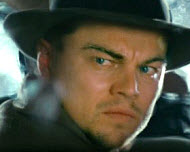
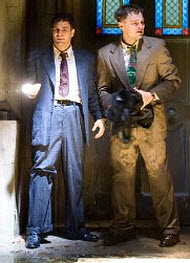
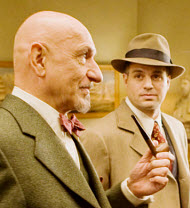
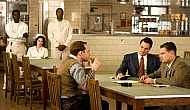
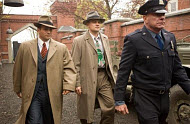
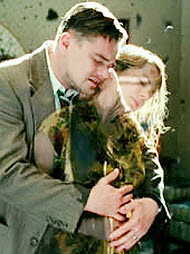
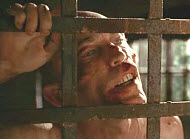
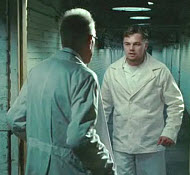
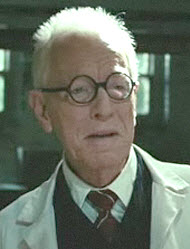
| Featuring |
|---|
| Leonardo DiCaprio (Teddy Daniels), Mark Ruffalo (Chuck Aule), Ben Kingsley (Dr. John Cawley), Emily Mortimer (Rachel Solando), Michelle Williams (Dolores Chanal), Max von Sydow (Dr. Jeremiah Naehring), Patricia Clarkson (Ethel Barton), Jackie Earle Haley (George Noyce), See all » |
| Director |
|
Martin Scorsese |
| Producer |
| Paramount Pictures, Phoenix Pictures, Sikelia Productions, Appian Way, Chris Brigham, Chris Brigham, Brad Fischer, Amy Herman, Laeta Kalogridis, Dennis Lehane, Mike Medavoy, Arnold Messer, Gianni Nunnari, Louis Phillips, Joseph P. Reidy, Martin Scorsese, Emma Tillinger |
| Distributor |
“Someone is missing.”
It’s certainly not a horror film, nor is quite a thriller. It’s not a drama, nor is it truly a mystery. “Shutter Island,” the latest film from Academy Award Winning Director Martin Scorsese, is really best described as a long walk, or a 138 minute run time, for a short drink of water, or in Shutter’s case, a simple and less than satisfying ending.
Teddy Daniels (Leonardo DiCaprio) is a U.S. Marshall who has been appointed to investigate the escape of a patient from a mental hospital for the criminally insane. With the hospital located on a small island and surrounded by miles of cold Atlantic water and rock bluffs, she is presumed to be hiding or dead. But as Daniels digs deeper into the case, he finds more secrets and perhaps more truth about the island and himself than he ever wanted to find.
Considering its pedigree, “Shutter…” was fairly dissatisfying. Coming from a director as talented as Scorsese, one expects a little more. The elements were all there: the camera angles, the stylized dark noir-esque scenes, and, of course, DiCaprio as the lead. But there were many elements that missed the mark. The musical score was overly dramatic, as violins pounded and shrieked relentlessly during calm car rides and walks through the hospital grounds. Dialogue was confusing in places, almost nonsensical and humorous in others, and Mark Ruffalo was, as usual, underwhelming in his supporting role, adding little to the on screen chemistry as DiCaprio’s partner throughout the ordeal.
The film’s biggest downfall is that it was simply too long for the message it had. Muddled in Scorsese’s ramblings and story telling, the whole ordeal felt like stumbling down an all too familiar psychological path en route to a bogged down dénouement. The conclusion which we’re presented as an audience is simply not enough to justify sitting for more than two hours, and exacts a “that’s it?” response from those who have been waiting attentively for a shocker ending that no one will expect. Unfortunately, your gut instinct as to what’s really going on is probably correct from minute 1.
30 to 40 profanities litter the script of “Shutter Island”, and can get quite coarse in some places, including 16 f-words and over 15 misuses of God’s names. Disturbing images are perhaps your biggest deterrent as various scenes of German death camps, dying or dead children, and graphic hallucinations of death and murder are ever present and quite realistic. There’s little sexual aspect to speak of, although there is a scene where Daniels descends into the cellar of part of the hospital and sees men who have been caged, and conceivably tortured, and are also nude.
“Shutter Island” certainly has Scorsese’s fingerprints all over it, but I feel as though he focused too much on the telling of the story, adapted from the novel by Dennis Lehane, rather than the conclusion. The story itself needed one more twist, not another overly dramatic walk down a long dimly lit hallway. It needed one final shock, not another seemingly meaningless dialogue exchange that we’re not meant to “get” until the end. “Shutter…” ultimately needed a moment of inspiration in its final 15 minutes to be more than just another thriller, but instead it was more an absurdly long hallucination or drug-trip accentuated by flashing scene transitions, gruesome and stylized images, and redundant and overly frequent dream sequences.
Ultimately, “Shutter Island” will certainly make you quiver, maybe even wince, but there’s little to shutter about in this mediocre, shockless, twistless disappointment.
Violence: Extreme / Profanity: Heavy to Extreme / Sex/Nudity: Moderate
See list of Relevant Issues—questions-and-answers.


Moral rating: Offensive / Moviemaking quality: 4½
Moral rating: Offensive / Moviemaking quality: 3½
What I didn’t like about the film was the excessive profanity. Also, a character in the film states that “God loves violence,” when in fact, He frowns upon it.
Moral rating: Very Offensive / Moviemaking quality: 4
Moral rating: Good / Moviemaking quality: 5
It also shows how mental patients used to be treated in this country and, in some countries, are still being treated, today. Nothing in this film shocked me. Shock treatments and lobotomies were common occurrences in the 1930s and 40s. The story of movie star Francis Farmer comes to mind whenever I think of stories about lobotomies. The standard version of the Frances Farmer story goes somewhat like this: An idealistic young actress challenges the hypocrisy of her world and becomes the victim of a spiteful mother, a vengeful Hollywood, and a cabal of callous and arrogant psychiatrists.
Together they force her into a state mental hospital, where she is brutalized by electric shock and other barbaric treatments; raped by orderlies, fellow inmates, and soldiers from a nearby Army base; and eventually lobotomized.
Her rebellious spirit finally shattered, she leaves the institution barely a half-woman and, only a shadow of the vibrant artist she had once been.
In “Shutter Island,” DiCaprio’s character, Teddy Daniels, is lost in a world of self delusion, thinking he is the “hero” going after his wife’s killer and through a series of hallucinations and dreams, he discovers—with the aid of the head psychiatrist—that He (Teddy) is the real killer of his wife who killed their three children. Shutter Island, is dealing with spiritual forces that psychiatry thinks are and is treated as mental illness. Not all mental illness is demonic but, a lot of it is. Many times it can be treated with psychotropic medications. But, in Teddy’s case, the horror of losing all three of his children overwhelms his sense of right and wrong and kills his wife for destroying his life. Then, he invents an alternate killer, and he is the special agent assigned to find him.
I find nothing in this movie to be “anti-Christian”. It is about life on planet Earth and the state that “man” finds himself in, but, can’t even begin to understand. True, we are dealing with extreme events in this movie; but, not that extreme. If you want to experience extreme events, read the daily newspaper, and see all the human tragedy and carnage that’s happening every single day.
I don’t know what Christians think movies are supposed to be like. Are they all supposed to be Bambies and daffodils where the “good guys” always win and the “hero” wears a white hat and ends up with the “girl”? We don’t live in the “Land of Oz” (if you saw the movie you would know what I mean).
We live in a world where everything dies and there is seldom a happy ending. And, the sooner we come to that realization the sooner and closer we will come to God—the real God, the Creator of the Universe!!!
Moral rating: Good / Moviemaking quality: 4
Moral rating: Offensive / Moviemaking quality: 5
Obviously there are some disturbing scenes including dead bodies, and when Teddy sees his wife, she is often seen bleeding or her body is being burning. I think all of the actors did a great job in this film. However, if you are easily offended, please do not see this film.
Moral rating: Offensive / Moviemaking quality: 4½
And it does not glamorize evil, at all. The sin that sometimes results from insanity is portrayed as a very tragic thing. As a general rule, the movie is not exploitative. The only significant thing that is outright offensive is the language. There’s barely any sexual content, it’s the violence that makes this film only for the mature. But, quite frankly, I’m indignant that Christians would say a film is “extremely offensive” when all it does is portray insanity in a thought-provoking, accurately gritty, and usually tasteful way.
Moral rating: Average / Moviemaking quality: 5
I left the movie feeling duped and thinking what a waste of time and effort for a movie, (although it was based on a novel). If you like suspenseful movies this one has promise but here’s its problem: the unexpected twist at the end insults the viewers comprehension of everything that comes before. It did at least with mine! It’s definitely one of those movies you have to watch a second time to glean it from a different perspective but is it worth it? In fairness to the novel it’s based on, the script and director Scorsese’s movie making it does make you think and that’s a good thing. It messes with your head, but I’m not so keen to watch it a second time to figure it out!
I give it a neutral review due to my lack of understanding it. If you want to see movie’s that are similar but not so obscure watch “The Sixth Sense” (1999) or “Hide and Seek” (2005).
Moral rating: Average / Moviemaking quality: 5
Moral rating: Extremely Offensive / Moviemaking quality: 5
Moral rating: Extremely Offensive / Moviemaking quality: 2
Moral rating: Offensive / Moviemaking quality: 3½
Bottomline: Very entertaining, creepy, and interesting. If you can handle the language (I could) then I recomend it to teens and adults. No one younger than that. Watch it.
Moral rating: Average / Moviemaking quality: 5
Unfortunately, its moral aspects astounded me in a negative way. From the previews, I expected some blood and language, considering its R rating. There was lots of both in the movie, from more than ten f-words to a Nazi leader shown laying on the floor with a huge hole in his face, blood flowing, as his troops are murdered by DiCaprio and his friends outside. From a Christian standpoint, I can find very little positivity from this film, since there was almost no Christain basis for morality; nor any Christian elements at all, save a decent quote from DiCaprio, “I thought God gave us a moral order.” At this, he is contradicting another man, who claims, “God loves violence. He gave it to us so we could use it as an offering to Him.”
From a moviewatcher’s standpoint, I was thoroughly impressed by the way the film was made. I was shocked and depressed by the ending, however, which leaves the viewer with a sad and regrettful feeling, as though nothing has been accomplished since the beginning of the movie.
Moral rating: Extremely Offensive / Moviemaking quality: 4½

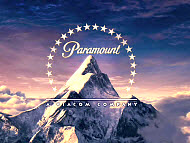
There’s a lot going on in this film, with subplots ranging from alcoholism to war stories to sick and twisted killings. Scorsese manages to keep all these plates spinning while delivering a suspenseful tale. Every bit of dialogue is for a specific purpose (especially Mark Ruffalo’s, which for some reason didn’t please Mr. Rogers), in fact, thinking about the film after viewing it makes you realize all of the clues you missed along the way.
While you can’t rank “Shutter Island” with Scorsese’s absolute best, it’s a very solid piece of entertainment reminiscent of a more bloody version of a good Hitchcock film.
My Ratings: Moral rating: Offensive / Moviemaking quality: 4